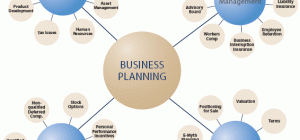 Recruiting new employees is a difficult and demanding process that requires adequate preparation and careful consideration to get right. Hiring the wrong person can be costly as it will not only force you to repeat the entire process, but could have detrimental effects on your business’ operations as well.
Recruiting new employees is a difficult and demanding process that requires adequate preparation and careful consideration to get right. Hiring the wrong person can be costly as it will not only force you to repeat the entire process, but could have detrimental effects on your business’ operations as well.
For smaller organisations, the effects of mis-hires will be more pronounced as each individual working in the organisation contributes a significant percentage to the overall success of the business.
With the many complications that come with recruiting, it’s easy to see why so many companies routinely make hiring mistakes and bring on board inferior employees. To help you avoid this costly error, we shall be looking at 5 of the most common hiring mistakes that companies make so that you can avoid them when recruiting.
- Creating vague job descriptions. Having a very general and vague job description will invite applications from candidates who loosely fit your search criteria. To attract candidates that better match what you are looking for in terms of qualifications, experience, and attributes, you’ll need to include more details in your job descriptions. Make sure to include the details and responsibilities of the position, the qualities you are looking for from candidates, and the level of performance you expect from the holder of the position. Having more detailed job descriptions might reduce the number of applicants, but the quality will consequently improve – making it a worthwhile trade-off.
- Casting a narrow net. Not looking wide enough for candidates will limit your options and make it more difficult to make a good hire. Cast a wide net when recruiting to get as many and as diverse applicants as you can. Don’t just advertise the job locally, go national or even international to find the kind of employee you are looking for. Do not limit your job advertisements to local newspapers. Use the internet to reach out to more potential candidates. Post the job vacancy on job websites, post it on your social media and on your company website as well. A broader applicant pool gives you more choice, and the choice is invaluable when recruiting.
- Conducting poor interviews. Poor interviews lead to poor hires as you will fail to acquire all the important information not included in the resume to determine whether an employee will be a good fit. A candidate might look good on paper but fail to hit the mark when it comes to real-life situations. Prepare for interviews adequately and make sure to ask your candidates questions that are scenario based so as to compel them to go beyond the set of rehearsed answers they’ve, most probably, come armed with.
- Inadequate or poorly done reference checks. Many recruiters take reference checks for granted considering them a mere formality for confirming an already made hiring decision. This is a huge mistake. Conducting enough reference checks in the proper manner could reveal crucial information that can determine whether a hire will be a good fit or not. Ask candidates to provide at least 5 references at various levels from subordinates to superiors to get a more rounded understanding of the candidate. Tailor the questions you ask to each specific reference to get as much information as you can get out of them. Reference checks not only provide you with information for making the hire, but could also help you manage the employee better once they’re hired.
- Cutting corners. Shortcutting your recruitment process when you’re under pressure to hire quickly might seem like a good idea, but it isn’t. Finding the best candidate for a role takes time, so make sure to allocate enough of it to complete the process without rushing things. It’s worth looking a bit longer for a star employee who is likely to succeed in the company, than to rush and hire a mediocre employee who will necessitate you to repeat the entire hiring process again after they, inevitably, fail.
Create a hiring manual to guide your recruitment strategy as a way of ensuring that every process and procedure is followed whenever you need to hire.
Recruiting is a delicate process that if done wrong could have detrimental effects on the current and future performance of your business. So make sure you hire well each and every time by avoiding these mistakes to keep your business on a growth trajectory.
Contributed byhttps://www.bluecollarpeople.com/







